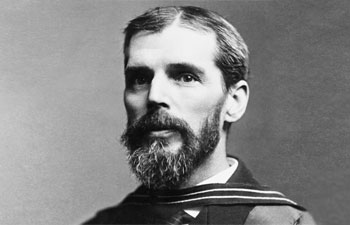On the March West with the North-West Mounted Police (NWMP)
With a mandate to contain the whiskey trade and bring law, order and justice to the western provinces, new NWMP recruits rode about 1,600 km from Dufferin, near the US border in Manitoba, to Fort Macleod, Alberta.
Few know that the March included two American-born — but Canadian-trained — surgeons, Drs. John Kittson and R. Barrington Nevitt. They were the first full-time physicians on the Prairies, west of Winnipeg.
The value of having two physicians became clear the first week after the March began, when it was almost halted by a severe outbreak of diarrhea and dysentery. The cause was typhoid fever, which would become the most common cause of NWMP deaths over the force’s first 25 years.
Nevitt returned twice to Dufferin to accompany or attend sick recruits. One died. On July 26, Nevitt and Kittson sent four more men back to Manitoba. On August 2, 22 developed dysentery. Two were sent to North Dakota with pneumonia. On August 19, seven more were left at Crippled Camp under Dr. Nevitt’s temporary care, to be picked up by the returning force in October.
During the March, Dr. Nevitt made two side trips to attend sick First Nations people, while Kittson treated the usual aches and pains that presented each day at sick parade.
At the Sweet Grass Hills, Kittson began his return with Colonel French to Swan River, Manitoba, as ordered by Ottawa. In his report, he noted, “there have been loss of oxen and horses, a few desertions and two deaths. All men had put on weight except one, and that member was the better for it.”
When the NWMP men arrived at their destination on October 13, their first action was to build Fort Macleod. The hospital was one room with enough space for 10 or 12 cots.
Over the next four years, Dr. Nevitt and his colleague did their best to respond to the waves of epidemics that swept the Prairies – smallpox, influenza, measles, typhoid fever, dysentery, gonorrhea, diphtheria and tuberculosis – treating NWMP men, the local citizenry and the area’s Aboriginal peoples, without distinction.
